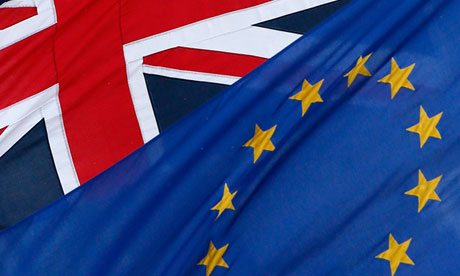

Economy
MPs to debate EU referendum for first time
Legislation paving the way for an EU referendum will be debated in Parliament on Tuesday for the first time by MPs.
MPs will debate the issue amid increasing pressures from all sides of the house for the bill to include clauses that will enable an entitlement for 16 year-olds to take part in the referendum.
The debate is likely to be overshadowed by speculation that government ministers will be sacked should they engage in campaigns to exit the EU.
David Cameron rejected that this was his position on Monday, saying that he has been misinterpreted. London Mayor and Conservative MP Boris Johnson told LBC that ministers should be allowed a free vote on the issue, saying it would be “safer and more harmonious” that way.
Cameron’s first few weeks in his new term as prime minister have been dominated by the question of Britain’s membership of the EU. He spent them visiting his counterparts on the continent attempting to negotiate reforms that he hopes will secure Britain’s future in Europe and encourage voters to back continued membership.
He plans to renegotiate the terms of Britain’s membership ahead of the vote.
The bill states that a referendum will take place by the end of 2017, with the question put to voters: “Should the UK remain a member of the European Union?”
Labour and the Liberal Democrats, initially in opposition to the referendum in the run up to the general election, are now backing the bill in principle. They will attempt to make changes that will include 16 and 17 year-olds in the vote.
Labour MP Chris Bryant said that it was important to make sure young people have their say in the forthcoming referendum, adding that it was the responsibility of schools to make sure young people are properly educated in politics and citizenship.
Speaking to Blue & Green Tomorrow, he said, “Young people have the biggest stake of all in the future of this country. They can marry, they pay income tax, they should be allowed to vote in general elections and in the referendum. And if that meant schools took citizenship more seriously, so much the better.”
The SNP have declared their opposition to the bill, saying that it must have a “double majority” that would require all four nations of the UK to vote in favour for a Brexit.
Further reading:
‘EU is key to national prosperity’, says CBI chief
Deutsche Bank prepares for UK exit from EU
Ireland says yes to same-sex marriage
Economic confidence strong amongst financial advisers


 Environment12 months ago
Environment12 months agoAre Polymer Banknotes: an Eco-Friendly Trend or a Groundswell?

 Features11 months ago
Features11 months agoEco-Friendly Cryptocurrencies: Sustainable Investment Choices

 Features12 months ago
Features12 months agoEco-Friendly Crypto Traders Must Find the Right Exchange

 Energy11 months ago
Energy11 months agoThe Growing Role of Solar Panels in Ireland’s Energy Future




























